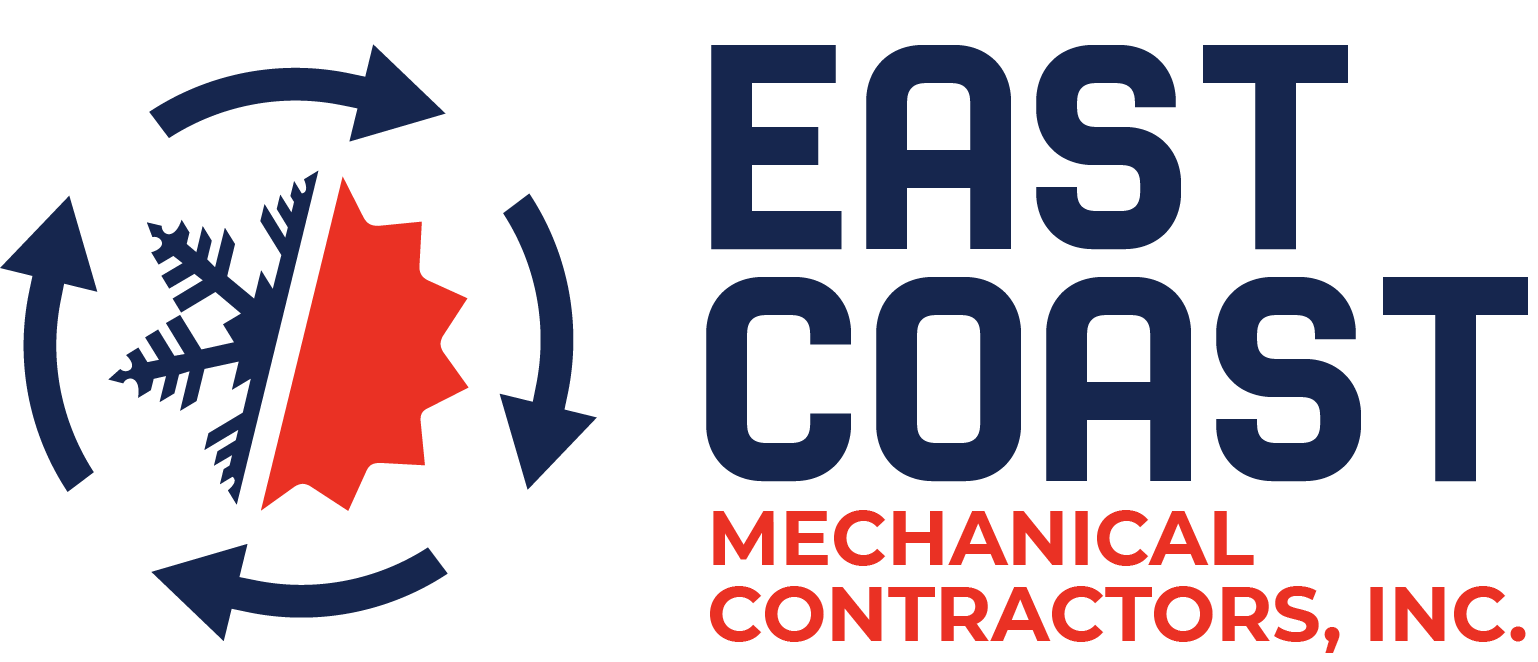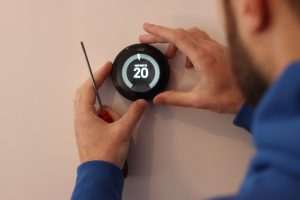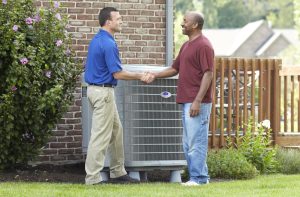As winter fades and warmer weather sets in, many homeowners notice a steady climb in their energy bills. Between switching over to air conditioning and spending more time indoors, utility costs can escalate quickly if you’re not prepared. Fortunately, there are simple and effective strategies to save on energy bills as the temperatures rise.
From making smart upgrades to your HVAC system to changing everyday habits, small adjustments can result in significant savings. This guide from ECMC HVAC outlines proven ways to reduce your energy consumption without sacrificing comfort. Let’s explore the top energy-saving tips to help you get the most out of spring and summer. A few proactive changes now can lead to improved year-round efficiency and lower utility costs.
Optimize Your Thermostat Settings
One of the easiest ways to cut energy costs is by adjusting your thermostat. During the warmer months, set your thermostat as high as comfortably possible. The U.S. Department of Energy recommends setting it to 78°F (26°C) when you’re at home and awake, and increasing it when you’re away or asleep.
Upgrading to a programmable or smart thermostat allows for automated temperature adjustments, ensuring you’re not cooling your home more than necessary. These devices can also learn your schedule and adjust settings to maximize efficiency while keeping you comfortable. Some models even provide real-time feedback and usage reports, helping you understand your energy patterns and make better decisions.
Adjusting your thermostat by just a few degrees can make a significant difference. Additionally, smart thermostats offer vacation modes and geofencing features to prevent unnecessary cooling when no one is home.
Schedule a Spring HVAC Tune-Up
Your HVAC system works hard to keep your home comfortable, but without regular maintenance, it can lose efficiency and cost you more to operate. A professional tune-up ensures your system is running optimally, especially as the cooling season begins.
During a spring maintenance visit, ECMC HVAC technicians will inspect and clean your AC unit, check refrigerant levels, examine ductwork, and test the thermostat. This not only improves efficiency but also extends the life of your system and prevents costly breakdowns during peak summer months. Preventative maintenance now can also help you avoid surprise issues during the hottest days of the year.
Tune-ups also identify small issues before they become expensive repairs. A well-maintained system uses less energy, cools more effectively, and keeps your home safer.
Replace Air Filters Regularly
Dirty or clogged air filters can restrict airflow and force your HVAC system to work harder than it needs to. Replacing your air filter every 1 to 3 months improves airflow, boosts efficiency, and enhances indoor air quality.
Choose filters with a MERV rating that balances filtration and system airflow, and consider upgrading to high-efficiency pleated filters during allergy season. Clean filters keep your system healthy and your energy bills low. Regular filter maintenance can also help reduce dust, pet dander, and allergens in your home’s air.
Clogged filters can increase energy use by 15% or more. They also lead to uneven cooling and contribute to premature system wear.
Seal Air Leaks and Improve Insulation
Air leaks around windows, doors, and ductwork can significantly affect your home’s energy efficiency. Use weatherstripping and caulk to seal gaps, and consider insulating your attic or walls if your home feels drafty or heats up too quickly.
Improved insulation and air sealing reduce the workload on your cooling system, keeping your home naturally cooler and saving you money. You’ll also enjoy more consistent temperatures throughout your living spaces. These improvements are particularly important in older homes where air loss is more common.
Don’t forget to inspect areas around light fixtures, attic hatches, and plumbing penetrations—common but overlooked places where conditioned air escapes.
Use Ceiling Fans to Circulate Air
Ceiling fans can complement your air conditioner by improving air circulation and helping rooms feel cooler. In the summer, set your ceiling fan to spin counterclockwise to push cool air down.
This allows you to raise your thermostat a few degrees without reducing comfort. Just remember to turn fans off when you leave the room—fans cool people, not rooms. Using fans in tandem with your AC can lead to noticeable savings over time.
Installing fans in bedrooms and living areas adds comfort and efficiency. Energy-efficient models with LED lights can further reduce utility costs.
Block Out the Heat with Window Treatments
Sunlight streaming through windows can dramatically increase indoor temperatures. Use blinds, curtains, or reflective window film to block out heat during the hottest parts of the day.
Light-colored shades and insulated curtains are especially effective in reducing solar heat gain. Keeping your home shaded means your AC system won’t have to work as hard. This strategy also improves comfort and reduces glare inside your home.
Installing window treatments with thermal backing or UV-blocking materials can cut solar heat by up to 30%.
Upgrade to Energy-Efficient Appliances
Older air conditioning units, refrigerators, and other large appliances can use significantly more energy than newer models. If you’re due for an upgrade, choose ENERGY STAR-certified appliances that are specifically designed for efficiency.
An energy-efficient AC unit, for example, can use up to 50% less energy than an older system. Combined with smart thermostat technology, appliance upgrades can deliver major long-term savings. It’s an investment that pays off both financially and environmentally.
Also consider upgrading smaller appliances like dehumidifiers or ceiling fans to newer, energy-saving models.
Consider a Whole-House Energy Assessment
To truly understand where your home is wasting energy, schedule a professional energy audit. This comprehensive assessment identifies air leaks, insulation gaps, appliance inefficiencies, and more.
ECMC HVAC offers energy evaluations that come with customized recommendations to help you reduce energy usage, lower your utility bills, and make your home more comfortable and environmentally friendly. An audit can also help prioritize which upgrades will have the greatest impact.
Many utility companies even offer rebates or discounted audits, making it more affordable to improve your home’s performance.
Leverage Natural Ventilation When Possible
On cooler spring days and nights, take advantage of natural ventilation by opening windows to let in fresh air. This can reduce your reliance on air conditioning and lower indoor temperatures naturally.
Just be sure to close windows and blinds during peak heat hours to trap the cool air inside. Cross-ventilation with fans and open doors can enhance airflow throughout your home. It’s a no-cost way to boost comfort and reduce mechanical cooling.
Try opening windows on opposite sides of your home to create a cross breeze and encourage fresh airflow.
Utilize Smart Home Technology
Integrating smart home devices like thermostats, lights, and plugs can greatly improve energy efficiency. Set schedules to limit usage when you’re not home, or adjust settings remotely when needed. Many smart devices also provide energy tracking features.
With smart home ecosystems, you can automate energy-saving routines—like dimming lights, shutting blinds, or turning off electronics. This connected approach ensures your home works smarter, not harder.
Smart plugs allow you to manage individual appliances, while home energy monitors give real-time insights into your usage.
Unplug Devices and Use Power Strips
Even when turned off, many electronic devices continue to draw phantom power. Unplugging chargers, televisions, and appliances when not in use—or using smart power strips—can reduce standby energy consumption.
Grouping electronics on one power strip makes it easy to disconnect multiple items at once. Over time, reducing phantom loads can lead to noticeable savings, especially in tech-heavy households.
You can save up to 10% on annual electricity costs by eliminating standby power losses.
Cook Smart to Reduce Heat
Using your oven or stove can heat up your home quickly, making your AC work harder. Instead, opt for microwaves, slow cookers, or outdoor grills to keep your kitchen cooler.
On hot days, preparing cold meals or grilling outside minimizes indoor heat buildup and energy usage. Cooking habits have a bigger effect on energy consumption than many realize.
Consider preparing meals in bulk to reduce the frequency of heat-producing cooking sessions.
Let ECMC HVAC Help You Save This Season
At ECMC HVAC, we’re committed to helping New Jersey homeowners enjoy greater comfort and lower energy bills year-round. Our experienced technicians provide comprehensive HVAC maintenance, smart thermostat installations, and energy-efficient upgrades that deliver immediate and long-term benefits.
Whether you’re preparing for summer or simply looking to improve your home’s energy performance, we’ll provide personalized solutions to fit your needs and budget. From tune-ups to high-efficiency system installations, we’re your trusted partner in home comfort and savings.
We also help you take advantage of available rebates and tax incentives to make your upgrades even more affordable.
Contact ECMC HVAC Today
📍 Address: 80 Leonardville Rd, Belford, NJ 07718
📞 Phone: (732) 936-9850
🌐 Website: https://ecmchvac.com
📧 Email: info@ecmchvac.com
🕒 Hours: Monday – Friday | 8:00 AM – 5:00 PM
Ready to save on energy bills this spring and summer? Contact ECMC HVAC today to schedule your tune-up or energy assessment.



